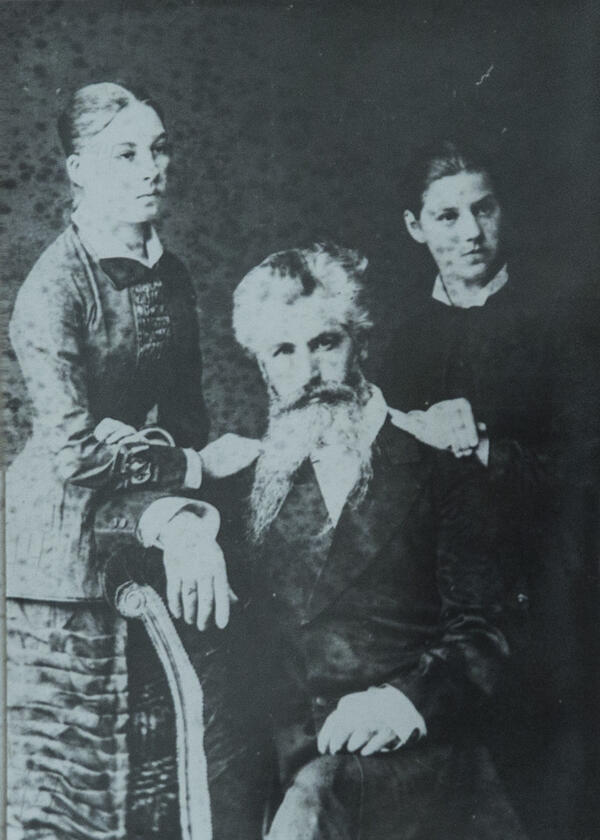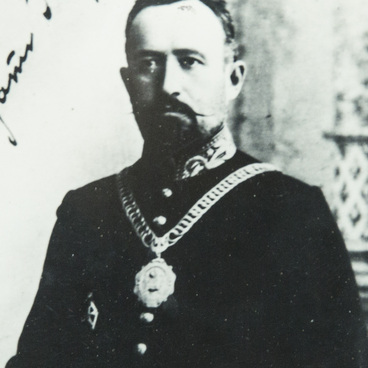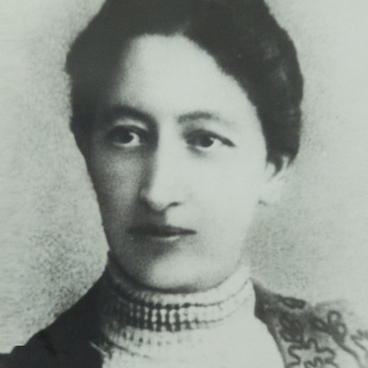The intellectual society made great contributions to the formation of the Ossetian people’s national identity. Its representatives were engaged in the preservation of traditional culture, the native language, and folk art. These goals were set by the brothers Dzhantemir, Gatsyr, and Gutsyr Shanaev, famous educators of the second half of the 19th century.
When Gatsyr Shanaev was 18 years old, he was called up for military service, where he quickly rose through the ranks. For his participation in the Crimean War in 1855, he was awarded the order “For Bravery”, and the Georgian Cross for his service in the Caucasus. However, failing health forced Gatsyr Tekayevich to leave the military. In his retirement, he became an educator, translating into Russian tales, legends, Nart sagas, and folklore collected by him in Ossetia’s mountain gorges.
The middle Shanaev brother, Gutsyr, graduated from the Pavlovsky Cadet Corps and participated in the Russo-Turkish war. After retiring, he received a law degree and began historical and ethnographic works. In 1882, Gutsyr Tekaevich thought about creating a ‘society for the dissemination of education and technical information among highlanders’, with the primary objective of opening schools for highlanders and providing material assistance to students.
Together with Gutsyr, the younger brother, Dzhantemir, a member of the first circle of Ossetian Narodniks, was at the origin of the ‘Society for the dissemination of technical knowledge and information among the highlanders of the Terek Region’. Dzhantemir Shanaev studied at the Vladikavkaz Military Academy, graduated from the Stavropol Gymnasium in 1868, and from Odessa University’s law department in 1874. Later, Dzhantemir Tekayevich became “a successful Vladikavkaz lawyer, with a solid bank account, with land holdings”. After fifty years, the Vladikavkaz Bar expressed its gratitude to him for his conscientious work: “For all the fifty years, Dzhantemir Tekayevich has always stood at his post, maintaining an unshakeably strong faith in the triumph of truth and law, considering that the judicial dispute of lawyers should be a noble tournament of self-respecting and court fighters, whose weapons are the law… Your literary works inspired young forces with the hope of creating a native written language and literature from the field of oral tales, and drew the attention of the better part of Russian society to the spiritual power of the small peoples of the Caucasus. Young researchers still draw knowledge from your work on the study of customary law in native Ossetia… When you look back on the long road of life that you have traveled on, you can be sure that you have traveled it with honor. Please accept from us and many, many others a tribute of respect and love.”
When Gatsyr Shanaev was 18 years old, he was called up for military service, where he quickly rose through the ranks. For his participation in the Crimean War in 1855, he was awarded the order “For Bravery”, and the Georgian Cross for his service in the Caucasus. However, failing health forced Gatsyr Tekayevich to leave the military. In his retirement, he became an educator, translating into Russian tales, legends, Nart sagas, and folklore collected by him in Ossetia’s mountain gorges.
The middle Shanaev brother, Gutsyr, graduated from the Pavlovsky Cadet Corps and participated in the Russo-Turkish war. After retiring, he received a law degree and began historical and ethnographic works. In 1882, Gutsyr Tekaevich thought about creating a ‘society for the dissemination of education and technical information among highlanders’, with the primary objective of opening schools for highlanders and providing material assistance to students.
Together with Gutsyr, the younger brother, Dzhantemir, a member of the first circle of Ossetian Narodniks, was at the origin of the ‘Society for the dissemination of technical knowledge and information among the highlanders of the Terek Region’. Dzhantemir Shanaev studied at the Vladikavkaz Military Academy, graduated from the Stavropol Gymnasium in 1868, and from Odessa University’s law department in 1874. Later, Dzhantemir Tekayevich became “a successful Vladikavkaz lawyer, with a solid bank account, with land holdings”. After fifty years, the Vladikavkaz Bar expressed its gratitude to him for his conscientious work: “For all the fifty years, Dzhantemir Tekayevich has always stood at his post, maintaining an unshakeably strong faith in the triumph of truth and law, considering that the judicial dispute of lawyers should be a noble tournament of self-respecting and court fighters, whose weapons are the law… Your literary works inspired young forces with the hope of creating a native written language and literature from the field of oral tales, and drew the attention of the better part of Russian society to the spiritual power of the small peoples of the Caucasus. Young researchers still draw knowledge from your work on the study of customary law in native Ossetia… When you look back on the long road of life that you have traveled on, you can be sure that you have traveled it with honor. Please accept from us and many, many others a tribute of respect and love.”



